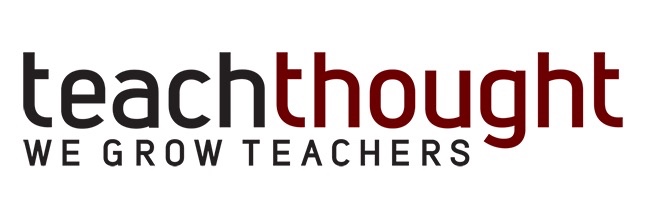学生和老师的12个最好的笔记本电脑
A laptop is a laptop.
Only anymore, that’s not entirely true. The collection ambition of the computer industry–undoubtedly pushed forward by consumer appetite for gadgets–has created an palpable enthusiasm for technology design.
当您考虑一般移动技术的相对较新的发展时,您将拥有一个成熟的创新,实验和一些尴尬的实验设计时的时代,因为制造商试图弄清楚这一切。
6 Questions To Consider When Buying A Laptop
1. Which operating system do you prefer?
This narrows it down quickly, and the two major players are obviously Microsoft and Apple, with Google’s Chrome OS recently making a nice dent in both. Making a decision here will cut your list dramatically.
为了most users, Microsoft likely makes the most sense in terms of affordability, options, and ecology. That said, Apple is obviously a brilliant choice for others. And they usually know who they are.
Do you want your smartphone to work together with your laptop–an iPhone and a MacBook, for example?
决策,决定。
2. Does mobility matter?
Do you want an ultrabook, or basic clamshell design? Should it be a 2-in-1? If so, does the screen have to detach? What size screen do you prefer? And weight? How mobile do you need it to be?
如果您不确定,则13.3和14英寸是不错的妥协。
3. How will you use it?
如果您只打算键入论文,请记笔记并发送一些电子邮件,则可以从当地百货商店购买基本的350美元笔记本电脑,然后完成。但是,如果您期望从笔记本电脑中获得更多,并且不想携带笔记本电脑,电话,和tablet–then you ‘ve got some thinking to do.
How about note-taking with Evernote or OneNote? Voice-recording for lectures or group work? Using learning simulations at home or in the classroom? Sharing notes that are a hybrid of drawing and words–sketch notes, for example–and then making them searchable and shareable with peers?
These kinds of questions can push you from the lower-endjust a laptop,to the new ultrabooks.
4. How do you want your speed?
Speed is not just a matter of processor speed or memory, but also storage. The relatively recent solid-state hard drives offer a significant increase in speed over traditional hard drives–but at a cost. Do you store everything locally, or in the cloud? If the latter, hard-drive capacity matters less than speed.
一个不错的选择是使用Cloud -Microsoft OneDrive,Dropbox,Google Drive等。
5. What are the details?
Do you want the most recent versions of bluetooth, WiFi, and USB? Any certain number of ports? LTE or WiFi only?
How about a touch screen? 5 point or 10? Capacitive or no? (The answer is yes if you need to do anything other than basic doodling on that fancy screen.)
6. What’s the budget?
这个问题和问题1可以做到这一点是一个简单的决定。
没有最好的
Of course, there is no “best.” But we had to give it a shot, and so we established three general categories that seemed to make the most sense for the classroom: Features, Mobility, and Cost.
Meaning that each of the following dozen laptops either works particularly well in one area, or does a decent job in all three. Every student will obviously weight these factors differently. For example, your average middle or high school student probably needs a basic, 13 or 14″ laptop that’s durable, not too expensive, and that has an excellent WiFi connection that can at least try to do its job when the school’s connection is spotty.
An engineering or art student will more heavily weight a capactive display for use with a smart stylus, while your general undergrad that only uses their laptop to type papers will consider cos and not much else. (Toshiba and Acer make some nice products, here.)
With the inherent vagueness and opacity of these kinds of lists clarified, you can see the dozen we came up with. Some are expensive. Some are ultrabooks. Some are rather basic. (See rationale above.) The big idea of this list is to represent an excellent starting point for teachers and students beginning to research what’s possible for laptops today.
Anymore, a laptop is no longer just a laptop.

 教导
教导Owner
The Best Laptops For Students In 2014
Listly by教导
A collection for the best laptops for teaching and learning as of mid-2014. Note that a variety of criteria are involved here--price, performance, features, software ecologies, etc. There isn't any one "best"!
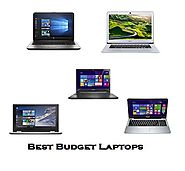 = e.width){e.setAttribute("data-vertical", "true")}})(this);" onerror="(function(e){e.setAttribute("src", "https://media-cdn.list.ly/missing-image.png");})(this);" data-src="//media.list.ly/production/69788/1934653/item1934653_185px.jpeg">
= e.width){e.setAttribute("data-vertical", "true")}})(this);" onerror="(function(e){e.setAttribute("src", "https://media-cdn.list.ly/missing-image.png");})(this);" data-src="//media.list.ly/production/69788/1934653/item1934653_185px.jpeg">
Best Budget Laptops? - This is our list of Top 5 Budget Laptops 2016, here you can find very best Budget Laptops under 300, under 500, under 700 or more expensive
 = e.width){e.setAttribute("data-vertical", "true")}})(this);" onerror="(function(e){e.setAttribute("src", "https://media-cdn.list.ly/missing-image.png");})(this);" data-src="//media.list.ly/production/69788/3652564/3652564-top-10-best-2-in-1-laptops-under-1000-in-2019-buying-guide-reviews_185px.jpeg">
= e.width){e.setAttribute("data-vertical", "true")}})(this);" onerror="(function(e){e.setAttribute("src", "https://media-cdn.list.ly/missing-image.png");})(this);" data-src="//media.list.ly/production/69788/3652564/3652564-top-10-best-2-in-1-laptops-under-1000-in-2019-buying-guide-reviews_185px.jpeg">
2-in-1 Laptops having features of both laptop and tablets are best for students.
 = e.width){e.setAttribute("data-vertical", "true")}})(this);" onerror="(function(e){e.setAttribute("src", "https://media-cdn.list.ly/missing-image.png");})(this);" data-src="//media.list.ly/production/69788/2890289/2890289-the-best-laptops-for-college-students-2018-for-every-budget_185px.jpeg">
= e.width){e.setAttribute("data-vertical", "true")}})(this);" onerror="(function(e){e.setAttribute("src", "https://media-cdn.list.ly/missing-image.png");})(this);" data-src="//media.list.ly/production/69788/2890289/2890289-the-best-laptops-for-college-students-2018-for-every-budget_185px.jpeg">
Looking for the best laptops for college students? To help you, we have gone for a broad review of best college laptops with powerful models, graphics, memory, display etc. You can choose any of them according to your budget and requirements.
Thanks to a lower price, longer battery life and lighter design, the 13-inch Retina MBP is a better deal than it was a year ago. It's so comp...
XPS 15旨在与MacBook Pro等其他高端大屏幕笔记本电脑竞争,具有出色的全高清显示屏,快速的Intel Process ...
HP的11英寸Chromebook。
The 2013 MacBook Air offers amazing battery life and fast disk speeds for an even more accessible price, but at this point, it could use a hi...
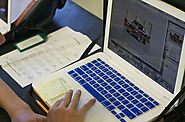 = e.width){e.setAttribute("data-vertical", "true")}})(this);" onerror="(function(e){e.setAttribute("src", "https://media-cdn.list.ly/missing-image.png");})(this);" data-src="//media.list.ly/production/69788/2890293/2890293-top-10-best-laptops-for-engineering-students-of-2018-best-laptop-ninja_185px.jpeg">
= e.width){e.setAttribute("data-vertical", "true")}})(this);" onerror="(function(e){e.setAttribute("src", "https://media-cdn.list.ly/missing-image.png");})(this);" data-src="//media.list.ly/production/69788/2890293/2890293-top-10-best-laptops-for-engineering-students-of-2018-best-laptop-ninja_185px.jpeg">
Searching for the best laptops for engineering students is not an easy task as you have to perform immense research while considering all options. To help you, we have gone for a broad review of best engineering students laptops with powerful models, graphics, memory, display, CPU etc.
 = e.width){e.setAttribute("data-vertical", "true")}})(this);" onerror="(function(e){e.setAttribute("src", "https://media-cdn.list.ly/missing-image.png");})(this);" data-src="//media.list.ly/production/69788/3017806/3017806-top-10-best-laptops-for-college-students-under-500-best-buy-ninja_185px.jpeg">
= e.width){e.setAttribute("data-vertical", "true")}})(this);" onerror="(function(e){e.setAttribute("src", "https://media-cdn.list.ly/missing-image.png");})(this);" data-src="//media.list.ly/production/69788/3017806/3017806-top-10-best-laptops-for-college-students-under-500-best-buy-ninja_185px.jpeg">
Are you a student and looking for a laptop under $500? Here's the list of 10 best laptop for college students under 500 dollars with best reviews and...
 = e.width){e.setAttribute("data-vertical", "true")}})(this);" onerror="(function(e){e.setAttribute("src", "https://media-cdn.list.ly/missing-image.png");})(this);" data-src="//media.list.ly/production/69788/2715235/2715235-top-10-best-laptops-for-photo-editing_185px.jpeg">
= e.width){e.setAttribute("data-vertical", "true")}})(this);" onerror="(function(e){e.setAttribute("src", "https://media-cdn.list.ly/missing-image.png");})(this);" data-src="//media.list.ly/production/69788/2715235/2715235-top-10-best-laptops-for-photo-editing_185px.jpeg">
Finding the best laptop for photo editing is not an easy task because there are many things which you need to consider before you are going to buying a laptop. For a photo editing work, you need a faster processor, more RAM, dedicated graphics card and enough storage to store your all photo editing files and photos. But you don’t worry you don’t need to worry about all these things, I have found some of the best laptops for photo editing for you, so now you have to just select the laptop as per your need and budget.
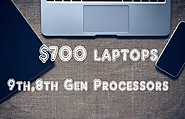 = e.width){e.setAttribute("data-vertical", "true")}})(this);" onerror="(function(e){e.setAttribute("src", "https://media-cdn.list.ly/missing-image.png");})(this);" data-src="//media.list.ly/production/69788/3864686/3864686-top-10-best-laptops-under-700-dollars-in-2019-updated-buyer-s-guide_185px.png">
= e.width){e.setAttribute("data-vertical", "true")}})(this);" onerror="(function(e){e.setAttribute("src", "https://media-cdn.list.ly/missing-image.png");})(this);" data-src="//media.list.ly/production/69788/3864686/3864686-top-10-best-laptops-under-700-dollars-in-2019-updated-buyer-s-guide_185px.png">
想买笔记本电脑?这是2019年对700美元低于700美元的前10个最佳笔记本电脑的评论。有了更新的买家指南,您将找到合适的笔记本电脑(第8代)用于游戏,办公室和家庭使用。
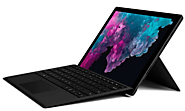 = e.width){e.setAttribute("data-vertical", "true")}})(this);" onerror="(function(e){e.setAttribute("src", "https://media-cdn.list.ly/missing-image.png");})(this);" data-src="//media.list.ly/production/69788/4257484/4257484-top-10-best-laptop-for-teachers-reviews-in-2020-gadgetscane_185px.png">
= e.width){e.setAttribute("data-vertical", "true")}})(this);" onerror="(function(e){e.setAttribute("src", "https://media-cdn.list.ly/missing-image.png");})(this);" data-src="//media.list.ly/production/69788/4257484/4257484-top-10-best-laptop-for-teachers-reviews-in-2020-gadgetscane_185px.png">
Explore the complete list of top 10 best laptop for teachers Here you can get light weight, high performance laptops for teachers
 = e.width){e.setAttribute("data-vertical", "true")}})(this);" onerror="(function(e){e.setAttribute("src", "https://media-cdn.list.ly/missing-image.png");})(this);" data-src="//media.list.ly/production/69788/4654966/4654966-sidify-music-converter-2-0-6-plus-crack-latest_185px.png">
= e.width){e.setAttribute("data-vertical", "true")}})(this);" onerror="(function(e){e.setAttribute("src", "https://media-cdn.list.ly/missing-image.png");})(this);" data-src="//media.list.ly/production/69788/4654966/4654966-sidify-music-converter-2-0-6-plus-crack-latest_185px.png">
Sidify Music Converter 2.0.6 Plus Crack {Latest} for Spotify is excellent software to download your favorite music. And playlists directly from Spotify without.
 = e.width){e.setAttribute("data-vertical", "true")}})(this);" onerror="(function(e){e.setAttribute("src", "https://media-cdn.list.ly/missing-image.png");})(this);" data-src="//media.list.ly/production/69788/6727295/6727295-what-is-the-best-gaming-laptop-to-buy_185px.jpeg">
= e.width){e.setAttribute("data-vertical", "true")}})(this);" onerror="(function(e){e.setAttribute("src", "https://media-cdn.list.ly/missing-image.png");})(this);" data-src="//media.list.ly/production/69788/6727295/6727295-what-is-the-best-gaming-laptop-to-buy_185px.jpeg">
In the time of 2021, finding the best gaming laptop is not difficult as it was in the past few years. Hundreds of articles and contents are available on the internet, which you can utilize to determine the right product for you.
An ultrabook with a high-res display, capactive touch, and fold-down design for drawing, note-taking, or presentations. Coupled with Duo, comes in a variety of sizes from 11-15".
新的Surface Pro作为笔记本电脑更换更可行,但作为独立平板电脑并没有取得太大进展。最终,它是...
It's been over a year since Samsung released a new Chromebook, and since then the competition has been heating up: Dell, HP, Lenovo and Toshiba all sell Chrome OS devices now, as does Acer, which has been at it from day one.
The ASUS Transformer Book T100 is a 10-inch Windows tablet that comes with a keyboard dock in the box -- all for just $349.
HP Split X2
Like the Asus Transformer, the HP Split X2 is a tablet with a keyboard.
Samsung launched its 13-inch ATIV Book 9 Plus Ultrabook with so much fanfare that it was easy to overlook the not-so-good news: The 15-inch Series 9 wasn't getting any updates. In fact, you can still buy it today, but with last year's Ivy Bridge chip and a 1,600 x 900 screen that doesn't support touch.
Yes, like many "ultrabooks", the Zenbook UX31 takes a lot of inspiration from the 13-inch MacBook Air. But it also has higher resolution disp...
Overall, Lenovo has created a good business notebook for 1500 Euro ($1830 USD). A few point deductions were made due to heat issues and the wobbly battery, but the ThinkPad T530 is a worthy successor for the T Series.
 = e.width){e.setAttribute("data-vertical", "true")}})(this);" onerror="(function(e){e.setAttribute("src", "https://media-cdn.list.ly/missing-image.png");})(this);" data-src="//media.list.ly/production/69788/1790562/item1790562_185px.jpeg">
= e.width){e.setAttribute("data-vertical", "true")}})(this);" onerror="(function(e){e.setAttribute("src", "https://media-cdn.list.ly/missing-image.png");})(this);" data-src="//media.list.ly/production/69788/1790562/item1790562_185px.jpeg">
在您的视频,链接和图片上获取更多的Facebook喜欢和推文!
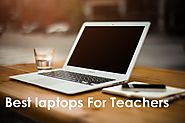 = e.width){e.setAttribute("data-vertical", "true")}})(this);" onerror="(function(e){e.setAttribute("src", "https://media-cdn.list.ly/missing-image.png");})(this);" data-src="//media.list.ly/production/69788/2599072/2599072-8-best-laptops-for-teachers-buyer-s-guide-feb-2018_185px.jpeg">
= e.width){e.setAttribute("data-vertical", "true")}})(this);" onerror="(function(e){e.setAttribute("src", "https://media-cdn.list.ly/missing-image.png");})(this);" data-src="//media.list.ly/production/69788/2599072/2599072-8-best-laptops-for-teachers-buyer-s-guide-feb-2018_185px.jpeg">
looking for the best laptops for teachers? then you should stop your search right now because I have 8 good laptops for your teaching profession.
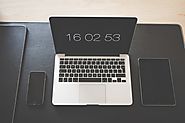 = e.width){e.setAttribute("data-vertical", "true")}})(this);" onerror="(function(e){e.setAttribute("src", "https://media-cdn.list.ly/missing-image.png");})(this);" data-src="//media.list.ly/production/69788/2628517/2628517-laptop-repair-the-most-basic-component-for-a-prolonged-life_185px.jpeg">
= e.width){e.setAttribute("data-vertical", "true")}})(this);" onerror="(function(e){e.setAttribute("src", "https://media-cdn.list.ly/missing-image.png");})(this);" data-src="//media.list.ly/production/69788/2628517/2628517-laptop-repair-the-most-basic-component-for-a-prolonged-life_185px.jpeg">
VRS Technologieshave been the pioneers inlaptop repair当今市场上的细分市场,一直率先解决与笔记本电脑有关的技术故障。为了laptop Repair Dubai,Call us at +971555182748. Visit us athttps://www.vrscomputers.com/repair/laptop-repair-servicing-dubai
学生和老师的12个最好的笔记本电脑in 2014 and 2015; image attribution flickr user vancouverfilmschool
